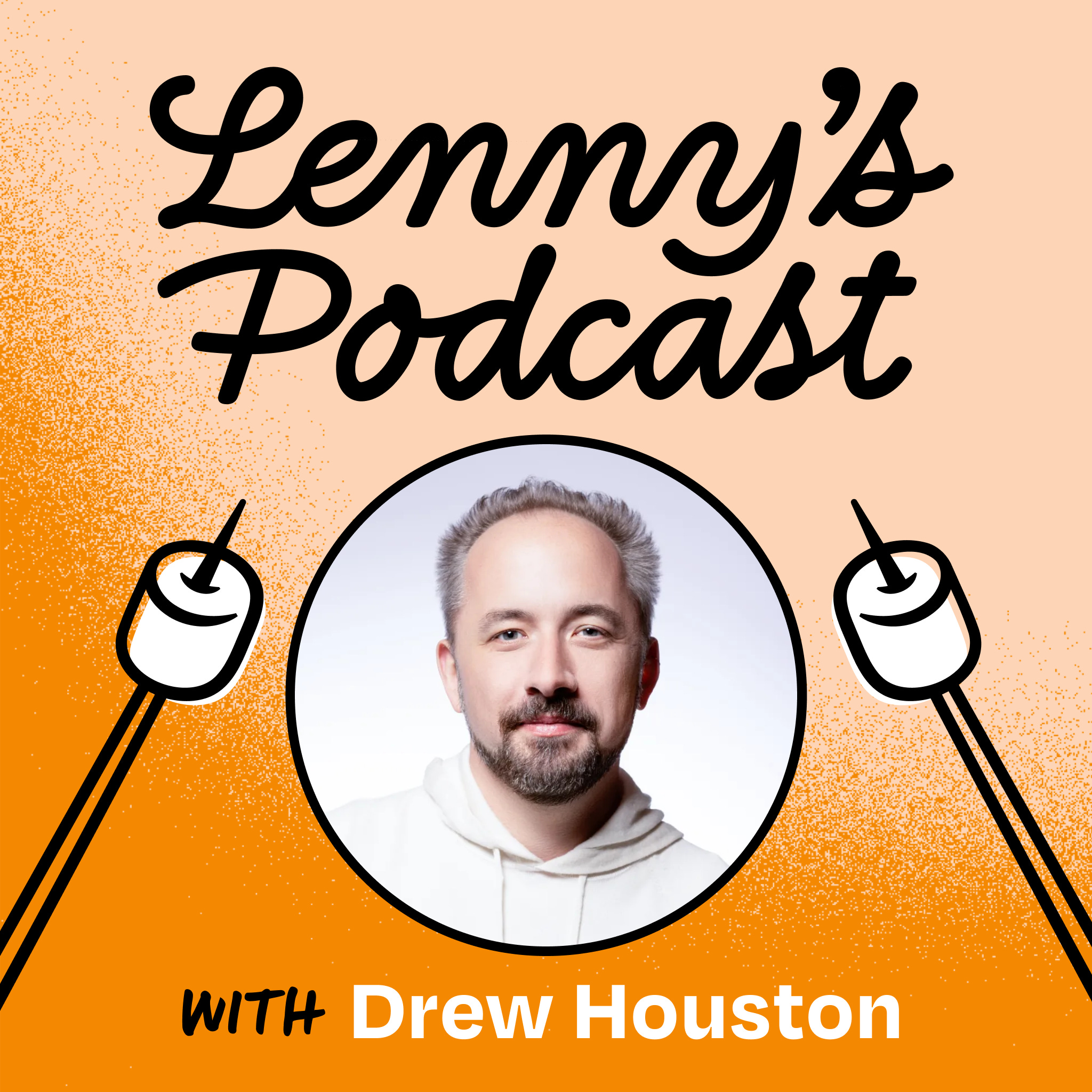
January 19, 2025 • 1hr 35min
10 growth tactics that never work | Elena Verna (Amplitude, Miro, Dropbox, SurveyMonkey)
Lenny's Podcast: Product | Growth | Career

Key Takeaways
- Growth teams should not be hired too early - Wait until you have product-market fit and significant data to analyze
- Growth teams cannot fix fundamental business problems - If growth is declining, address core product/market issues first
- Rebrands and redesigns rarely drive growth - They often lead to temporary performance declines
- Don't blindly copy competitors - Use them for inspiration but develop solutions specific to your context
- Focus on earned channels over paid - Build sustainable growth loops through virality and user-generated content
- Avoid over-experimenting - Not everything needs to be A/B tested; trust intuition for lower-impact changes
- Career optionality is key - Don't limit yourself to traditional full-time roles; explore multiple ways to monetize your skills
Introduction
Elena Verna is one of Silicon Valley's most sought-after growth advisors, having led growth at companies like Amplitude, Miro, Dropbox, and SurveyMonkey. In this episode, she shares her insights on common growth tactics that don't work, her favorite growth frameworks, and advice on building career optionality.
Topics Discussed
Common Mistakes in Hiring for Growth (8:31)
Elena discusses why companies often hire growth teams too early, before they have achieved product-market fit or have enough data to analyze.
- Founder-led growth is crucial in early stages until reaching $1-5M ARR
- Two prerequisites before hiring a growth team:
- Strong product-market fit with good retention
- Sufficient data volume to analyze and experiment with
- For B2B companies, consider whether to hire sales before growth based on monetization strategy
Growth Teams Cannot Fix Declining Business (15:09)
Elena explains why hiring a growth team to fix declining metrics is a common mistake.
- Growth teams can optimize by 10-15% but cannot fix fundamental business problems
- Address core product and marketing issues first before investing in growth
- Wait until decline is stopped or showing signs of plateau before adding growth resources
The Rebrand/Redesign Trap (19:20)
Elena shares why rebrands and redesigns rarely drive meaningful growth results.
- "Never ever once have I seen a rebrand or redesign especially of a marketing site produce good performance results"
- Rebrands often lead to:
- 6-10 months of development time
- Significant agency costs
- Initial performance decline
- Only pursue if setting up for future brand evolution, not immediate growth
Competition and Benchmarking (25:11)
Discussion of how to properly use competitive analysis without falling into common traps.
- Use competition for:
- Inspiration and ideation
- Understanding common patterns
- Learning from others' experiences
- Avoid:
- Direct copying of features/flows
- Skipping user research and testing
- Relying solely on competitive benchmarks
Problem Solving Approach (34:00)
Elena emphasizes that most growth problems are not unique and have been solved before.
- Don't start from scratch - research existing solutions
- Talk to people who've solved similar problems
- Look for patterns that can be applied across situations
- "Your problem has been felt by somebody somewhere in probably many, many places"
Growth Channel Strategy (42:32)
Discussion of the importance of focusing on earned channels over paid acquisition.
- Earned channels include:
- Virality
- Word of mouth
- User-generated content
- Benefits of earned channels:
- More sustainable long-term
- Cannot be easily replicated by competitors
- Less dependent on external platforms
Evolution of Growth Models (50:55)
Elena explains why companies need to continuously evolve their growth strategies.
- Growth models typically have 5-7 year effective lifespans
- Need to introduce new growth loops every 18 months
- Allocate 20-25% of growth team time to exploring new channels
- "If you have a growth model that works for you, that's wonderful... but you're going to need to evolve it"
The Role of Advisors (1:01:06)
Discussion of why companies should leverage advisors for growth.
- Benefits of advisors:
- Access to pattern recognition
- Faster learning cycles
- External perspective
- Tips for working with advisors:
- Do a workshop first to evaluate fit
- Pay for their time
- Regularly assess value add
The Over-Experimentation Trap (1:05:55)
Elena warns against the paralysis that comes from trying to test everything.
- Guidelines for experimentation:
- Must be able to collect sample size within one month
- Use pre/post analysis for lower impact changes
- Trust intuition more for obvious improvements
- "If every single one of your initiatives is an experiment, that's a problem"
Quick-Fire Growth Tactics to Avoid (1:10:44)
Elena shares several common tactics that waste time and resources.
- Color optimizations - Pick accessible colors and move on
- Third-party signups - Only add if truly necessary for user experience
- One-off emails - Focus on email strategy/series instead
- Blind simplification - Address specific user problems rather than removing steps arbitrarily
Career Optionality (1:18:50)
Elena shares her contrarian view on career paths and monetizing skills.
- Alternative career options:
- Consulting/advising
- Interim roles
- Fractional positions
- Content creation
- Focus on increasing options rather than climbing traditional ladder
- "Life is too short to be boxed into one company that may not be a great fit"
Conclusion
Elena provides a wealth of practical insights on what not to do in growth, while emphasizing the importance of focusing on sustainable, earned channels and continuous evolution of growth strategies. She also challenges conventional wisdom about career paths, encouraging professionals to think more broadly about how to monetize their skills and create optionality in their careers.









